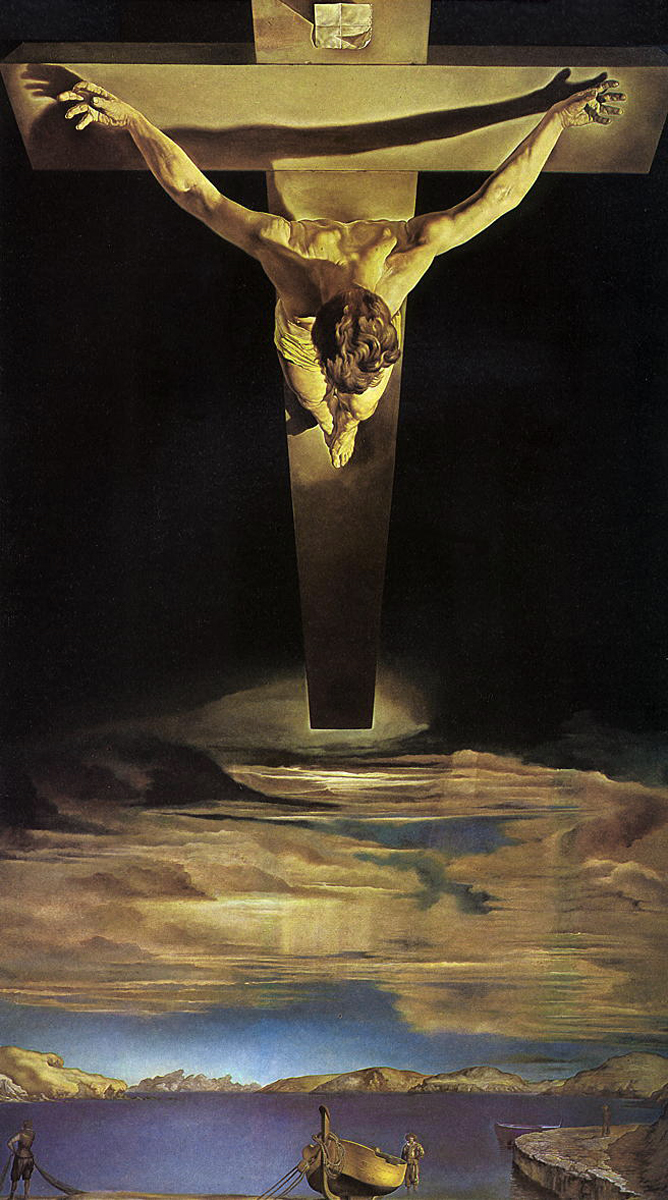Do you need to tear up your wrong ideas about God?
One of the things we quickly discover about Jesus Christ is that he upends many of our expectations about God.
This is our experience as we start to think seriously for the first time about who Jesus is. And it should also be an ongoing discovery as we engage in the lifetime adventure of following Christ day by day. We may have to tear up what we thought we knew.
At the heart of the Christian faith is the cross. And at the epicentre of what the cross is all about there is the loud sound of tearing. It's the noise being made as the blue, purple and scarlet curtain – nearly 60 feet high and four inches thick – in the Jerusalem temple is ripped from top to bottom. The historian Josephus tells us that even horses couldn't shift that veil once it was in place. But at the precise moment Jesus dies, it is supernaturally torn apart.
So why did it happen? How does it challenge ideas we may have about God – both if we are thinking about him for the first time or have been a Christian for many years? What wrong ideas may we need replace?
1. It means access to God doesn't depend on how good or bad we are. The curtain in the temple separated the area known as the 'Holy of Holies' from the rest of the building. That inner sanctuary was where God especially dwelt. Because of God's holiness (his otherness, total purity and goodness) – no-one could enter, apart from the High Priest.
The ripping of the curtain represents the fact that through Jesus' sacrificial death, the way to God is now completely open – even though he is still as holy as he always has been. That access, won through the cross, is open to all – no matter how 'good' or 'bad' we have been. It becomes a reality for us when we make a heart-felt decision to turn around, turn away from a self-centred life, and turn towards Christ, placing him at the centre of our lives and living life in a way that pleases him in the light of that re-orientation. That's what the phrase 'repent and believe' means.

2. It means God doesn't live in church buildings – he lives in his people. The temple was where God was particularly present. But after the death of Christ, and the opening up of the Holy of Holies, the New Testament speaks of Christians rather than any building as 'God's temple' (1 Corinthians 3v16). Because of the cross, Christ lives in his people by his Spirit. So if you were to picture a Christian walking outside a church, it would be the Christian who should be labelled 'temple' while the church should simply be labelled 'building'.
3. It means using the language of priests and altars can be misleading. The torn curtain in the temple marked the end of the sacrificial system and with it the Old Testament priesthood and altar. The old rules were torn up – because they were fulfilled in Christ, as the Letter to the Hebrews explains. Consequently, many Christians prefer to speak of a 'Communion Table' rather than an altar, and of 'ministers' (or pastors or vicars or presbyters) rather than 'priests' in order to avoid any misunderstandings. Clarity in language helps clarity of understanding about what Christ has done.
4. It means Jesus' predictions about the destruction of the temple started coming true. In her book The Crucifixion, Fleming Routledge says: 'Jesus predicted the destruction of the Jerusalem temple, so that rending of the curtain vindicates Jesus by signalling the destruction of the sanctuary.' That prediction was completed when the Romans over-ran the temple as a whole in 70AD.
5. It means God won't tolerate corruption among his people's leaders for ever. Drawing on Malachi 1v6-3v4, Routledge also suggests that the wording of Mark's gospel at this point suggests the tearing of the curtain is 'an act of the wrath of God against the corruption of the temple and its priests'. Malahi 2v3 has the Lord warning: 'I will smear on your faces the dung from your festival sacrifices, and you will be carried off with it.' For any of us in church leadership, this should really bring us up short. What, we might ask, does God make of our denominations and leadership today?
6. It means God is let loose in the world. As New Frontiers church leader Andrew Wilson has written, the tearing of the curtain means 'the presence of God is now spilling out into the world'. And Stephen March writes in Fuel for pilgrims: 'Christ is let loose in the world through the indwelling presence of the Holy Spirit in all those who receive him in repentance and faith.'
Where does all this take us? The New Testament makes it clear: 'Let us then approach God's throne of grace with confidence, so that we may receive mercy and find grace to help us in our time of need.' And you can do that right now.
David Baker is a former daily newspaper journalist now working as an Anglican minister in Sussex, England. Find him on Twitter @Baker_David_A The Rough Guide to Discipleship is a fortnightly series.











